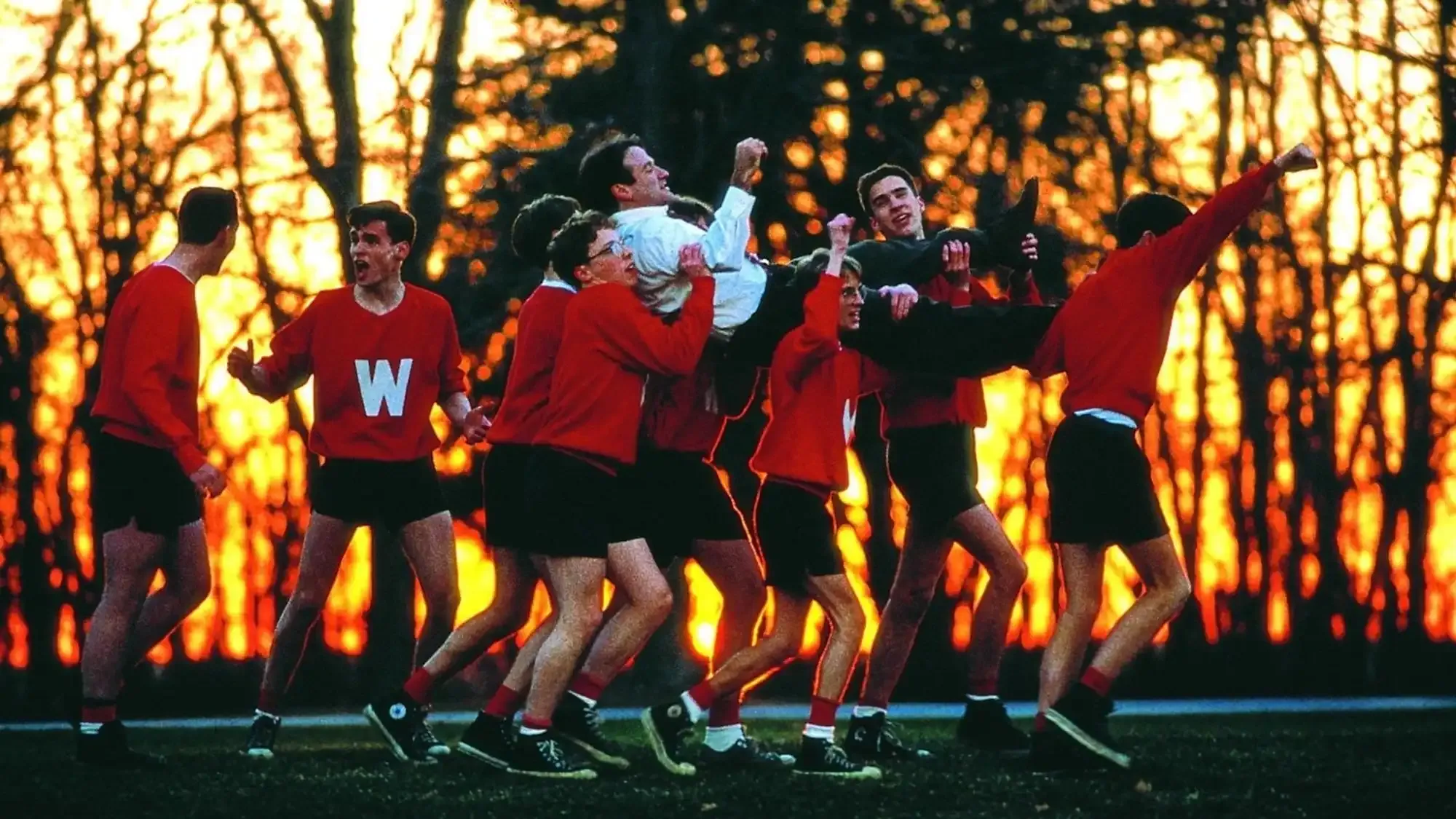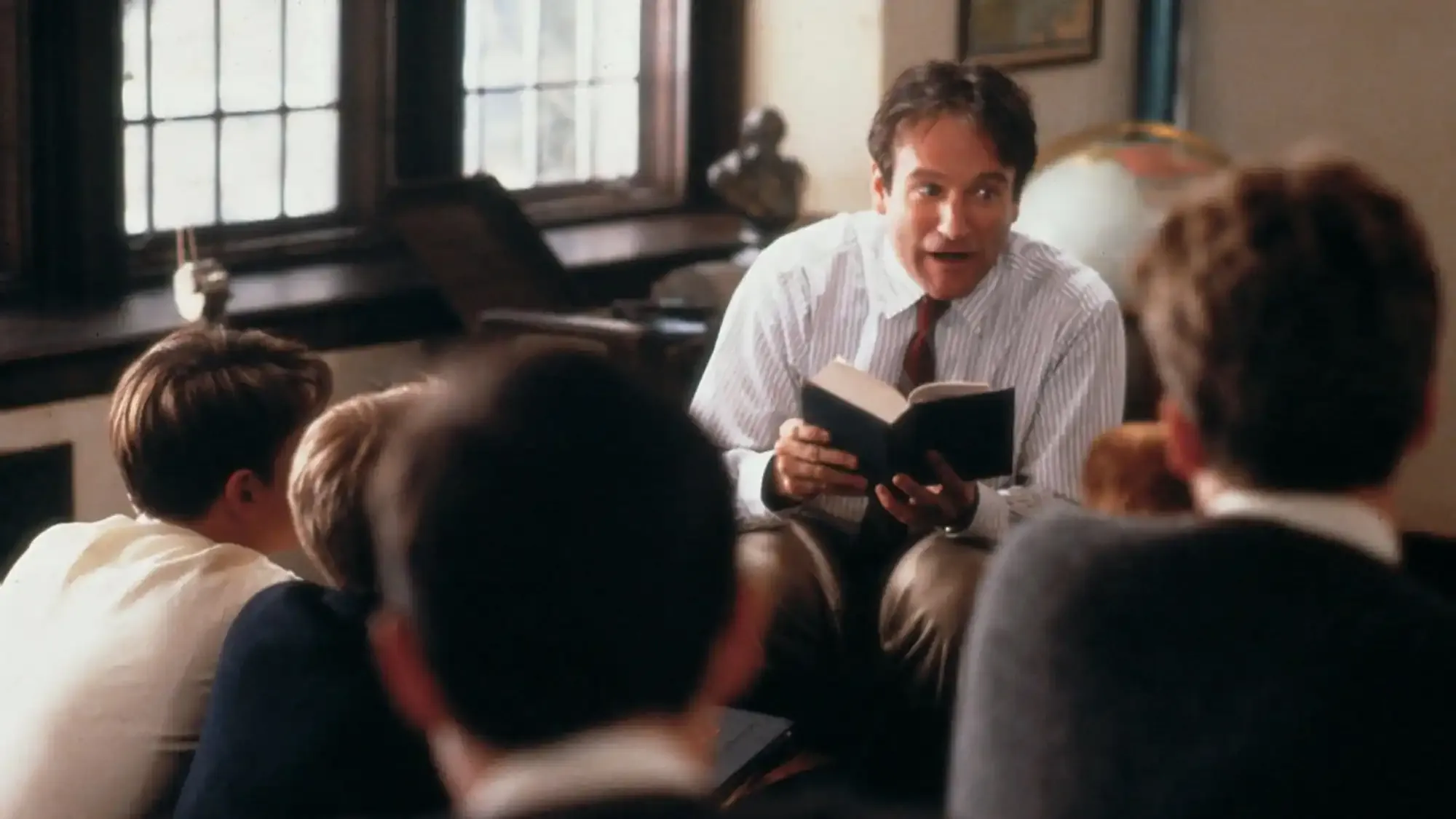"Carpe Diem and the Quest for Authenticity: `Dead Poets Society`s` Lasting Lesson"
Posted Wednesday, Nov 29, 2023 143
The esteemed 1989 drama `Dead Poets Society`, directed by Peter Weir, explores the resonant impact of inspiration and nonconformity within the halls of the conservative Welton Academy. Robin Williams stars as John Keating, an English teacher whose unorthodox methods and passionate call to `Carpe Diem` (seize the day) kindle the flames of self-expression and rebellious spirit in his students. As Keating influences the boys to embrace poetry and creativity, they confront the expectations of their school, their families, and the society that circumscribes their ambitions.
Weaving themes of individuality, the power of art, and the pressures of tradition, `Dead Poets Society` juxtaposes youthful idealism against the rigidity of tradition. The film’s tone is both uplifting and poignant, presenting an earnest and moving account of personal discovery that balances hope with the somber realities faced by the characters.
Williams delivers a performance of nuanced dynamism, portraying Keating with infectious enthusiasm and profound depth that transcend the conventional teacher archetype. The young ensemble cast, including Ethan Hawke and Robert Sean Leonard, effectively encapsulate the turmoil and exuberance of adolescence, each student`s journey adding layers to the collective narrative.
Peter Weir directs with a poetic lens, capturing both the oppressive atmosphere of the academy and the liberating power of Keating`s teachings. His storytelling acts as an ode to the impact one person can have on the lives of others, culminating in a film that is as thought-provoking as it is emotionally stirring.

The film’s score by Maurice Jarre complements its introspective mood, with compositions that deepen the sentiment and weight of key moments, subtly driving the story’s emotional resonance.
Cinematographer John Seale’s work emphasizes the institutionalized environment of Welton Academy through austere and symmetrical visuals, contrasting with the lush, open landscapes that symbolize the freedom of thought Keating inspires in his students.
The ivy-clad facades and wood-paneled interiors of the production design echo the privilege and history of an elite institution, while underscoring the film`s thematic constriction and the urgency of breaking free from it.
Special effects are not a feature in the film, eschewing visual spectacle in favor of strong narrative and character-driven moments where the human experience comes to the fore.

The editing facilitates the story`s measured pace, allowing for the impact of Keating’s lessons to be fully absorbed and for the emotional arcs of the characters to mature naturally throughout the film.
The pacing of `Dead Poets Society` is deliberate, granting weight to the profound life questions it raises and avoiding the rush of action to allow viewers to ruminate alongside the characters.
The dialogue is one of the film`s cornerstones, filled with evocative quotations from classic poets and original lines that are equally memorable, particularly Keating’s enlivening speeches that drive the film’s core messages.
Though critically acclaimed, some may argue that the film idealizes the impact of Keating’s liberal pedagogy, and its portrayal of teen angst may feel stylized or melodramatic to certain viewers.
As a critic, `Dead Poets Society` stands as a cinematic homage to the value of inspiration and an unyielding tribute to the transformative potential of teaching. The film’s narrative strength and emotional gravity have fashioned an indelible remark upon both cinema and audiences worldwide, encouraging all to seize the day.